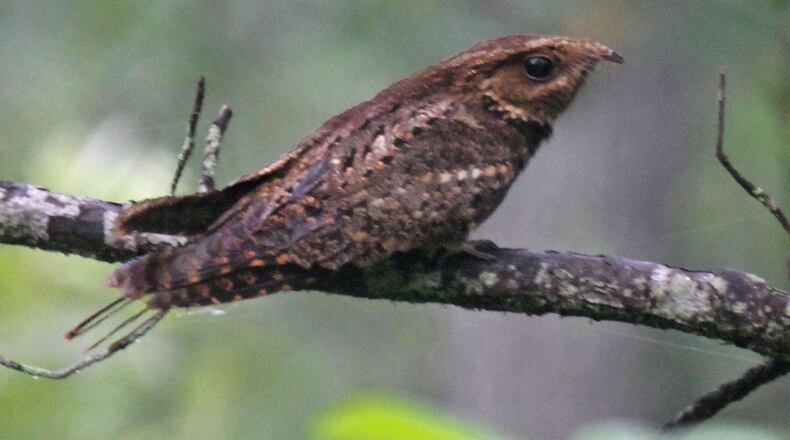I was sitting with a friend on his back porch in rural Crisp County in South Georgia the other evening when we heard the plaintive, insistent call of a bird emanating from the woods.
“Ah, a whippoorwill,” I said. “I haven’t heard one in a while.”
“You’re not hearing one now,” my friend quipped. “That’s a chuck-will’s-widow.” Using a birdsong app on his cellphone, he compared the calls of the two birds. He was right: I was hearing a chuck-will’s-widow.
We agreed, though, that the mournful calls of both birds are similar and that many people mistake the chuck-will’s-widow’s call for the whippoorwill’s. To me, both calls are classics of summer nights in the South.
The birds themselves are close cousins, both belonging to the nightjar, or “goatsucker,” family. They are migratory, arriving in Georgia in March to nest and then heading south again in September. The whippoorwill, however, nests mostly in North Georgia; the chuck-will’s-widow does so across most of the state.
The birds, though, are rarely seen because they are most active at night. They nest on the forest floor in the brown leaf litter, where their mottled brown plumage gives them perfect camouflage.
Of the two species, the whippoorwill by far is the most famous. A slew of writers and poets over the centuries have celebrated the whippoorwill in literature and poetry. It’s also the bird of sad country songs. In his classic “I’m So Lonesome I Could Cry,” famed country singer Hank Williams crooned: “Hear the lonesome whippoorwill. He sounds too blue to fly.”
The chuck-will’s-widow, however, is now getting its share of attention. Georgia Audubon has selected it as the “Species of Concern” for the period 2023-2025. The bird’s population is in serious decline because of loss of its open woods habitat and decreasing insect numbers. Teaming up with University of Georgia researchers, Georgia Audubon is sponsoring research, habitat restoration and other efforts to help reverse the chuck-will’s-widow’s decline. For more information: georgiaaudubon.org/chuck-wills-widow.html
IN THE SKY: From David Dundee, Tellus Science Museum astronomer: The moon will be last quarter on Thursday. Mercury (low) and Venus are in the west just after sunset. Mars is high in the southwest at dark. Saturn is low in the east just before sunrise.
Charles Seabrook can be reached at charles.seabrook@yahoo.com.
About the Author
Keep Reading
The Latest
Featured


